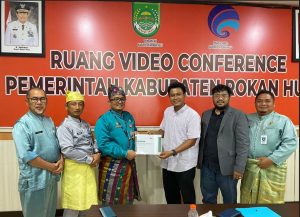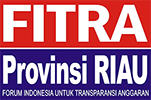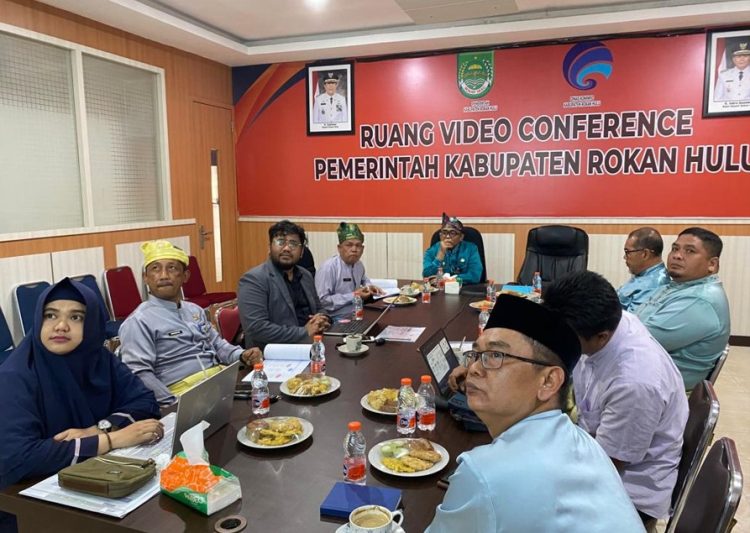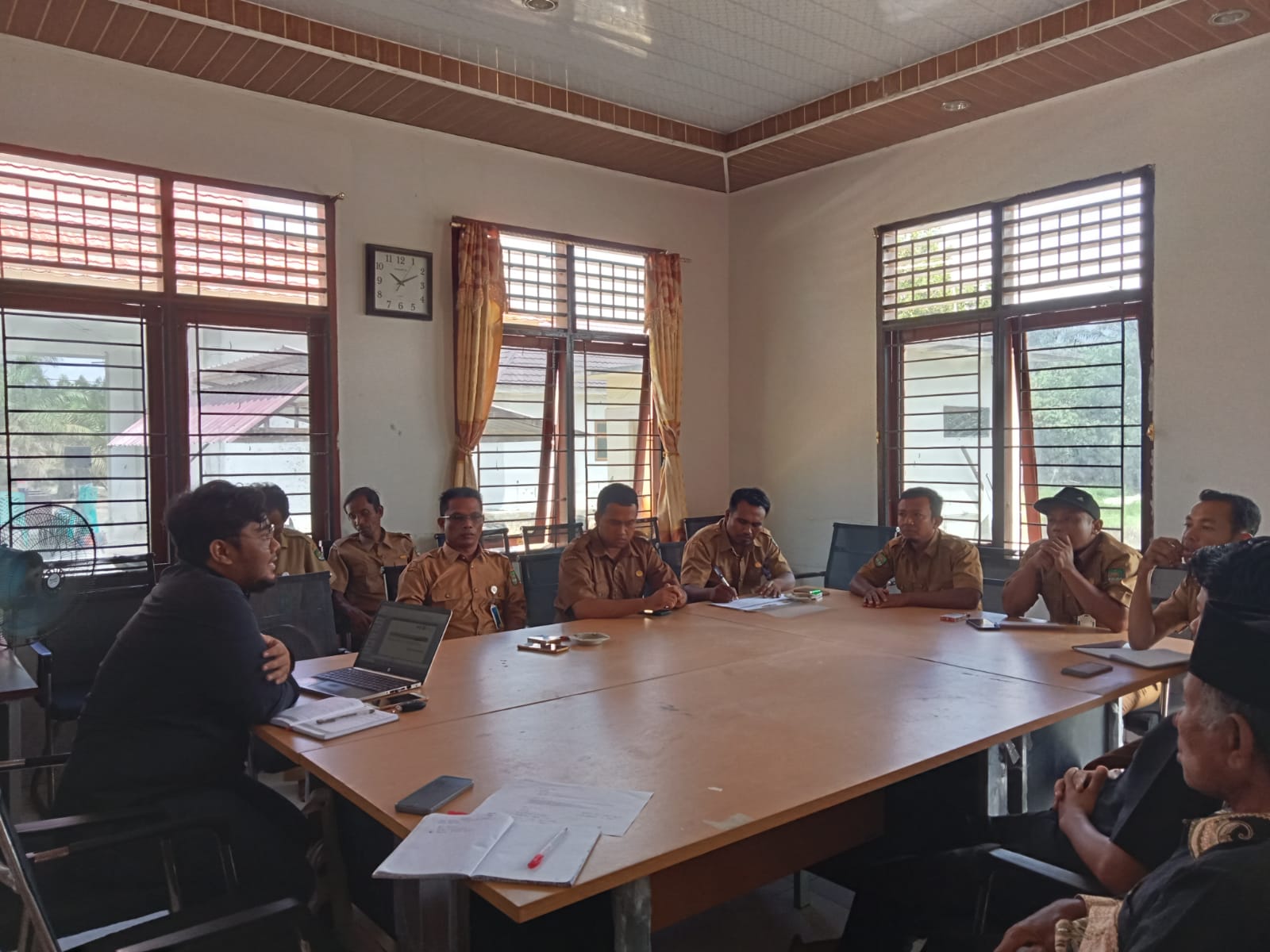FR2023– A discussion led by the Regional Secretariat (Sekda) of Rokan Hulu Regency, Muhammad Zaki, STP, MSi, took place on Tuesday, August 1, 2023. Fitra Riau had the opportunity to explain the concept of the policy on the Redistribution of Oil and Gas Revenue Sharing Funds (DBH Migas) to villages, as a policy recommendation for managing DBH. The discussion also involved the heads of related Regional Apparatus Organizations (OPD) such as the Head of the Community Empowerment and Village Government Agency (DPMPD), the Head of the Regional Development Planning Agency (BAPPEDA), the Secretary of the Regional Financial and Asset Management Agency (BPKAD), and Head of the Rokan Hulu Information and Communication Agency.
The concept of the policy on the Redistribution of DBH Migas to villages is an alternative proposal for an innovative regional financial management policy for the revenue from oil and gas that is received annually as part of the central transfer (TKDD). This idea is based on the consideration that the current revenue from oil and gas in the region has not been directly beneficial to the producing villages’ communities. Additionally, no specific policy in the region affirms the oil and gas-producing villages in planning and development programs. This policy concept is proposed with special attention to the regions that receive DBH Migas for the benefit of the producing villages as a form of shared benefit.
This concept is similar to the DBH policy for regional governments producing oil and gas and other natural resources, which is stipulated in the scheme of the Central-Regional Financial Relations Law (HKPD). The central government provides privileges to regions in the form of DBH for regions that contribute to the national revenue from taxes and non-taxes. Therefore, similar arrangements should be made by regional governments for villages contributing to the DBH received by the regions, through special privileges or affirmations.
The scheme of redistributing DBH from the District to villages has also been mandated in Law No. 6 of 2014 on Villages. However, in this law, it is limited to DBH from Local Taxes and Regional Levies (PDRD). The government is required to allocate a share of PDRD revenue received by the district to the villages as village revenue. Nevertheless, there is still an opportunity for regions to carry out other DBH redistributions (in this case, DBH Migas) to villages using various financial schemes.

Fitra Riau offers two schemes as alternatives to implementing the policy of redistributing DBH Migas to villages. The first scheme involves the reformulation of the allocation of the Village Fund (ADD). The consideration of oil and gas-producing areas (villages) becomes an indicator in determining the ADD received by the Village Government. The Village Law and its derivative Government Regulations (PP) provide discretion to regional governments in determining ADD’s allocation and distribution mechanism through the Regent Regulation (Perbup). The general allocation mechanism is based on considerations of Fixed Income for Village Apparatus (SILTAP) and considerations of population, poverty rate, geography, and land area. Thus, this provision allows regions to regulate and develop other schemes that do not conflict with legal provisions.
In this scheme, Fitra Riau recommends adding indicators for distribution that were previously divided based on the Minimum and Proportional ADD mechanisms. These indicators include SILTAP Allocation, Minimum Allocation, Proportional Allocation, Performance Allocation, and Special Migas Allocation. The calculation simulation involves dividing a portion of the 10% of the General Allocation Fund (DAU) received by the region into two parts: one part based on SILTAP needs calculation and the other part for minimum allocation distributed equally. Then, 10% of the Tax and other Natural Resource Revenue (DBH Pajak dan SDA) is distributed proportionally based on population, poverty rate, land area, geography, and the village’s performance. Finally, 5% of the received DBH Migas is distributed with an approach based on three impacted regions.
The second scheme offered is through the Special Financial Assistance (BKK) approach. This scheme encourages regional governments to allocate a portion of the received DBH Migas in the form of BKK to the villages with consideration for the affected oil and gas-producing areas. According to the Village Law No. 6 of 2014, one of the village revenues is the General and Specific Financial Assistance from the Regional Government (Province or Regency/City). So far, the BKK practice has been applied by regions for specific purposes to the village government. This policy opportunity can be used by the Regency government to provide BKK to villages based on special considerations for the impacted areas.
After listening to and considering Fitra Riau’s explanation of the policy concept and the offered calculation simulations, the Regional Secretariat of Rokan Hulu and the involved OPD leaders responded positively. The Sekda of Rokan Hulu confirmed the issues and challenges faced by oil and gas-producing areas in Rokan Hulu. These issues include poverty and stunting, with oil and gas areas being prioritized for stunting handling. Therefore, he believes that this policy concept is an innovative regional financial management approach and a concrete form of special attention to oil and gas-producing areas in Rokan Hulu to alleviate poverty and stunting.
Based on the simulations presented by Fitra Riau, Sekda and the involved OPD chose to conduct an initial trial using the ADD scheme. This decision was made because the current financial capacity of the region does not allow additional transfers to the region unless mandated. The Regional Government also plans to increase the ADD allocation from the previous 10% (minimum mandate) to 13-15% of the DBH + DAU received by the Regency in the form of ADD transfers. Hence, there is a high likelihood of implementing this simulation offer.

In conclusion, after the discussion and deliberation on the formulation of the redistribution of DBH Migas to villages, the Regional Government is committed to implementing the proposed policy concept by Fitra Riau. They requested Fitra Riau’s assistance in accompanying the policy formulation process until completion. The Sekda explained that the next step would involve Fitra Riau directly collaborating with the Community Empowerment and Village Government Agency (Dinas PMD) for further processes until the necessary policy formulation for implementing the concept is completed. (*)














